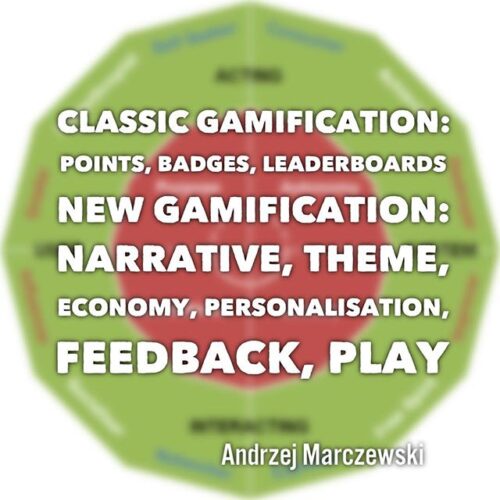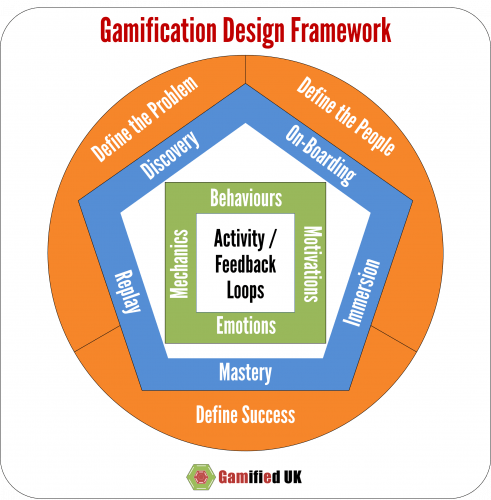Gamification is becoming more and more prevalent in the software industry. Many businesses are integrating game mechanics into their customer loyalty programs, websites, and other digital products to drive engagement and increase the adoption of various features. However, while gamification has become commonplace as a trend, it’s not that easy to implement correctly. Many organizations make mistakes when incorporating gaming elements into their products. Let’s take a look at some common pitfalls and how you can avoid them when implementing gamification strategies in your own organization.
After you’ve done the research, you need to make sure that you incorporate it into your gamification strategy. You want to make sure that you tailor the gaming experience to each one of your personas. You need to engage your users on an individual level. That’s why it’s crucial to take your user research and make it the core of your gamification strategy. You need to make sure that you incorporate elements of your customers’ lives into your game mechanics. That’s the only way to make sure that they are truly engaging.
Lack of User Research
Before you even begin to think about incorporating gaming elements into your platform, you have to conduct thorough user research. User research is at the heart of any good design process, and gamification is no exception. If you fail to conduct proper user research, you are almost guaranteed to make mistakes in your gamification strategy. The process of defining your customer personas and conducting user interviews is essential for uncovering the core needs and desires of your target audience. You need to understand who your customers are, what their goals are, and what drives them. You want to identify the motivations that drive your users to take certain actions, so that you can use gamification to engage them on a deeper level.
Overuse of Extrinsic Rewards
Many organizations begin the implementation of gamification by focusing on extrinsic rewards. While this might be a good approach to engage users and get them invested in the platform, it can quickly become too pushy and annoying. If you rely on extrinsic rewards, you’ll find yourself in a situation where you have to keep on adding new rewards. Once customers have earned all of the rewards on your platform, they’ll have no reason to continue engaging with it. It is crucial to also embed intrinsic rewards into your gamification strategy. Intrinsic rewards are things like progress, accomplishment, and skill development. You want to make sure that your users are not only engaged, but motivated by the process of engaging with your platform.
Poorly Defined Success Criteria
Along the same lines, you should make sure that you define your success criteria. In fact, you should probably do that before you even conduct the user research. You need to understand what success looks like for your organization. What are the desired outcomes of your gamification strategy? This can be done in a variety of ways. For example, you can take your core customer personas and define success for each persona. You can also take your key performance indicators and define success for each one of them. Another thing you can do is to take your core values and make sure that gamification aligns with them.
No Clear Objectives
Another thing that businesses often forget is that they need to make sure that the objectives they are trying to achieve with gamification align with their overall business goals. You don’t want to simply implement game mechanics because they’re currently trending or because it seems like a cool thing to do. You should approach gamification with a strategic mindset and make sure that it’s worth your while. That’s why it’s essential to make sure that your gamification strategy aligns with your overall business objectives. You want to make sure that your objectives are clear and that game mechanics are the best way to achieve them. If you’re struggling to find the right objectives for your gamification strategy, you might want to consider using the 10x Rule. It is a rule that many companies use to prioritize their key initiatives in terms of growth.
No Continuous Measurement and Analysis
You also need to make sure that you are continuously measuring and analyzing your gamification strategy. You need to make sure that you have dashboards that allow you to track your progress and make changes as necessary. That’s the only way to make sure that your gamification strategy is working. That’s how you can avoid making mistakes when implementing gamification strategies in your organization. Making mistakes is inevitable when you’re trying new things and making big changes. That’s why it’s important to learn from your mistakes and make corrections when necessary. Now that you know about some of the most common mistakes in gamification and how to avoid them, you can implement game mechanics more effectively.
By the way, this was written entirely by AI using writesonic.com – Let that sink in a moment!
This was an experiment to see how well the AI works and to be honest it is pretty good and convincing. It does plagerise a little it seems, but I wonder if that is because the links that are flagged as plagerised were also generated by AI?
Here is what https://www.check-plagiarism.com/ has to say
| Sources | Similarity |
18 Ways to Make Your Customers’ Lives Easier – Call Centre Helper Compare text https://www.callcentrehelper.com/18-ways-to-make-your-customers-lives-easier-63394.htm | 4% |
The Impact Of Intrinsic And Extrinsic Rewards – UKEssays.com Compare text | 4% |
The Impact Of Intrinsic And Extrinsic Rewards – UKEssays.com Compare text | 4% |
5 Great Customer Persona Examples (and How to Use Them) Compare text https://www.ictshore.com/business/customer-persona-examples/ | 4% |
10 questions to ask before any user research – UXM Compare text https://www.uxforthemasses.com/10-questions-before-user-research/ | 4% |
Similar Posts:
Also published on Medium.



